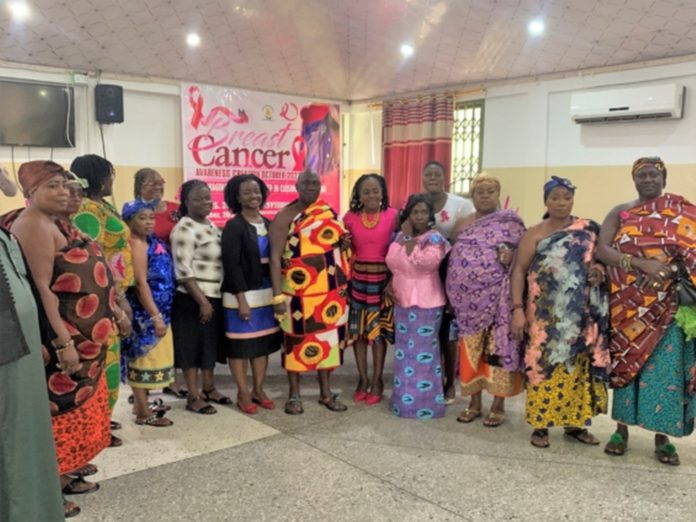In a bid to promote breast cancer awareness and early detection, the Ashanti Regional Health Directorate has provided education and essential health screening to some women and students in the Ashanti region.
The Deputy Director of Clinical Care of the Ghana Health Service, Dr. Mrs Rita Larsen-Reindorf, emphasized the need for women to undergo breast cancer screening.
“It is the responsibility of us all, we should all get involve in creating breast cancer awareness. If we can close that gap and get involved in awareness creation, it will help in early detection and management because when breast cancer is detected early, something can be done about it. The outcomes can be better,” she said.
She also observed that, people do not participate in these screenings because of the myths and stigmatizations that surround breast cancer.
“Stigma is also a problem, and again, because of the myths, people tend to be afraid. We don’t know what causes it so people think that when you have it, it’s a curse. We tend to stigmatise it, which is why we are creating awareness. We have seen positive outcomes, and I believe this will help people gain awareness about breast cancer,” she said.
The participants were educated on how to perform self-examinations.
Non-communicable disease coordinator of Ghana Health Service in the Ashanti Region, Lydia Owusu Ansah wants health practitioners to also focus on breast cancer in men.
“Usually because the percentage of men is low our focus is mostly on the women but about 2% of males also suffer from breast cancer so we are opening our gates for each and everyone to partake in the screening,” she said.
She also debunked the notion that breast sizes can be determinants of breast cancer.
“Usually, we take into consideration your weight, because of the body make up. We have people that get breast cancer and their chests are even flat.
“There are other people who have large breasts but do not get breast cancer so we are saying this because some of them are hereditary and some of them is because of their lifestyle, some are also biological,” she said.
Participants also took part in eye screening and other general health screening.
ALSO READ:

